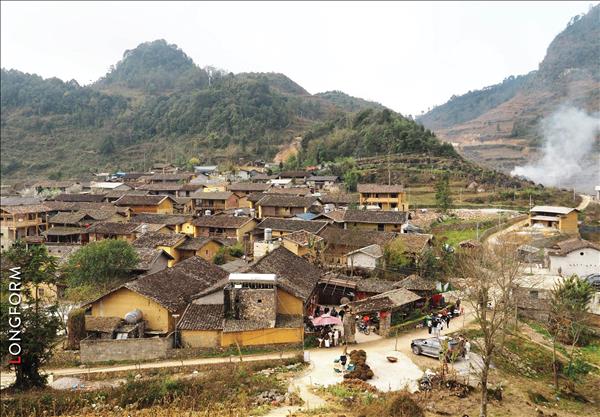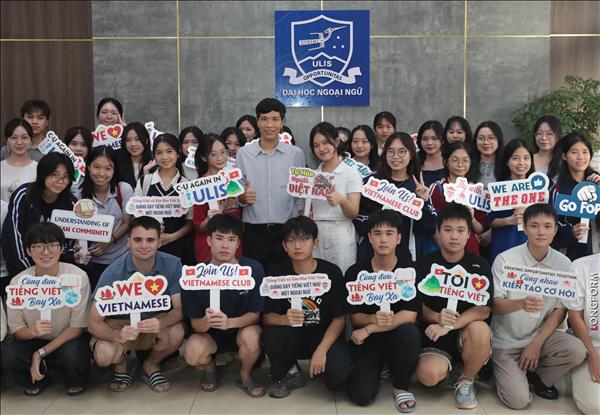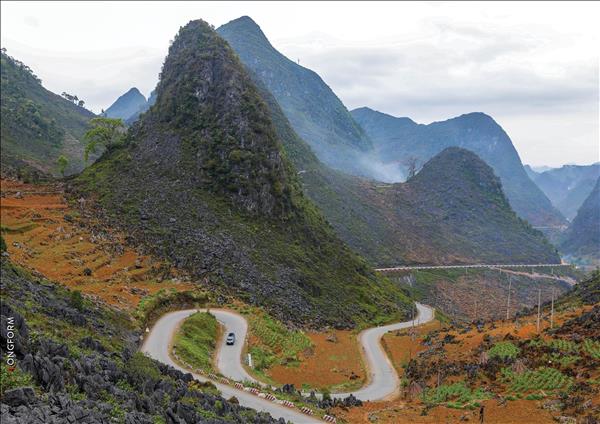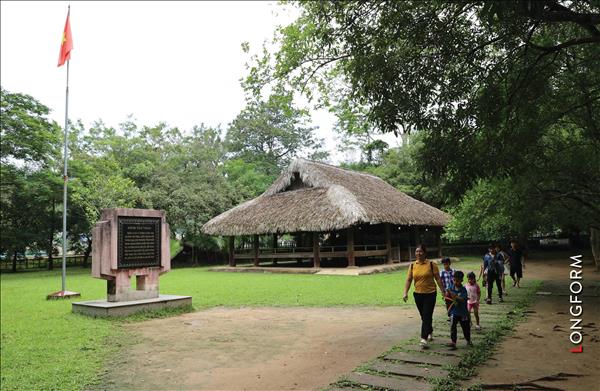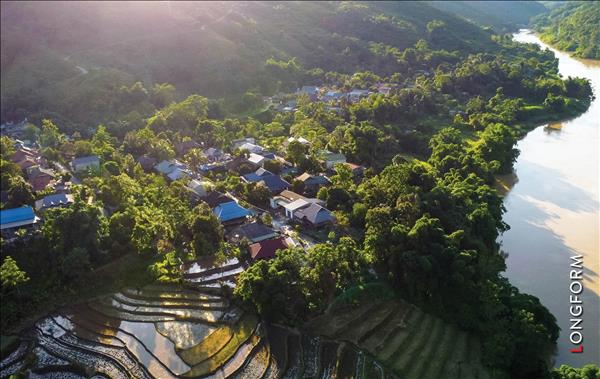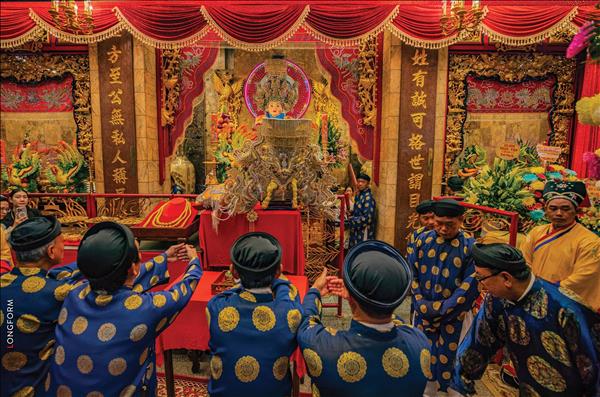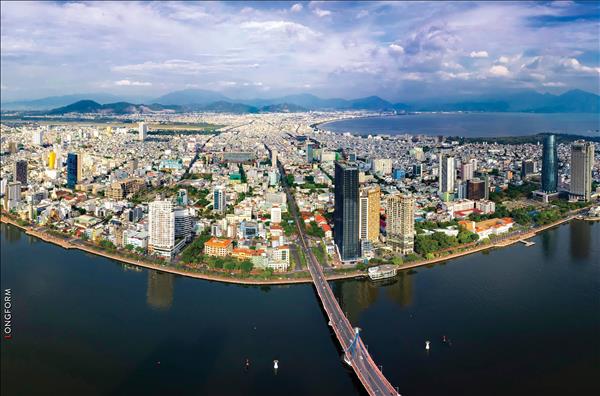Special flights
On January 25, only three days after the first COVID-19 patient was reported in Vietnam, the Prime Minister chaired a cabinet meeting, asking concerned agencies and organizations to promptly support Vietnamese citizens in epidemic-affected areas around the world.
While struggling against COVID-19 in the country for the last eight months, Vietnam has not neglected the needs and expectations of its citizens living far away from home. Concerned authorities have taken comprehensive efforts to help overseas Vietnamese nationals who got stuck in mass lockdowns that were imposed to contain the spread of the novel coronavirus. This work was done in a spirit of “leaving no one behind”, ensuring everyone who needed it to receive needed support.
At a meeting of the National Steering Committee for COVID-19 Prevention and Control on March 18, Deputy Prime Minister Vu Duc Dam reiterated that “the Party, State and people will take the greatest effort and necessary measures to best assist overseas Vietnamese who are in urgent need to return home.” He stressed that such support was “the sentiment of fellow citizens.”
|
As assigned by the government, Vietnam Airlines, operated a flight on February 10 to return Vietnamese nationals from Wuhan – the epicenter of the Covid-19 outbreak. Photo: Viet Linh
The Airbus A350 aircraft of Vietnam Airlines takes off from Hanoi to Equatorial Guinea
to bring home Vietnamese citizens, with many thought to be carrying COVID-19. Photo: Viet Linh The positive pressure room in the airplane carrying Vietnamese citizens home from Equatorial Guinea. Photo: Viet Linh The flights to rescue citizens home are equipped with plastic curtains, air purifiers, alcohol wet towels, trash bags and airplane guidelines sheets. Photo: Viet Linh
Members of the Vietnamese Embassy in South Africa go to the airport to provide essential supplies
and assist with boarding procedures for people to return home. Photo: Phi Hung 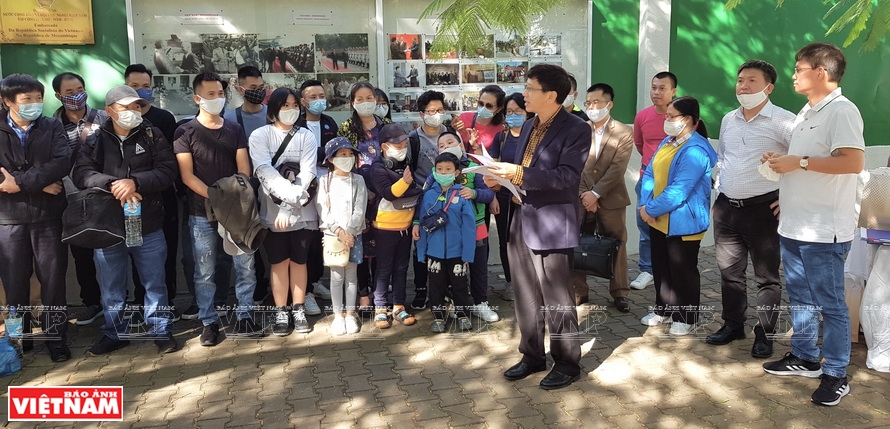
The Vietnamese Embassy in Mozambique sends staff to the airport
to assist Vietnamese people before their flight to return home. Photo: Phi Hung 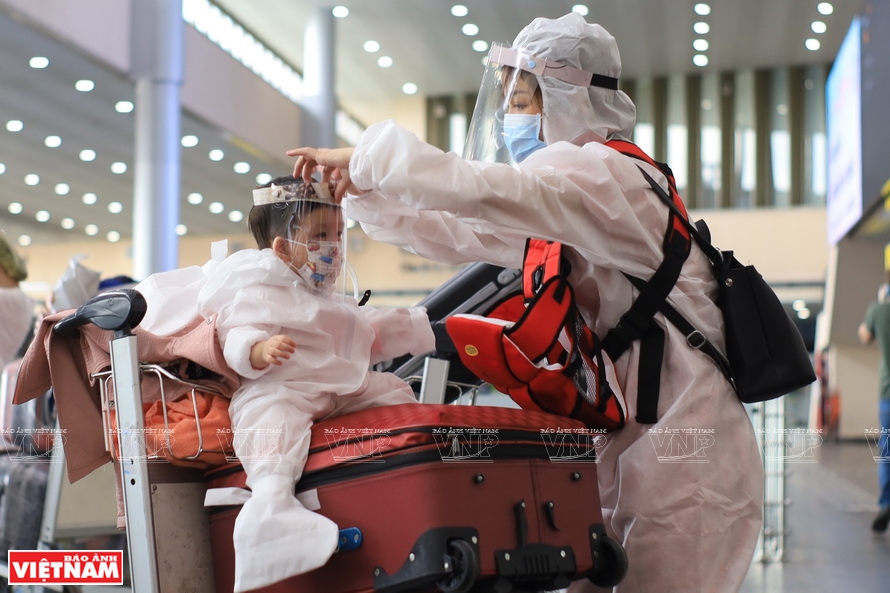
Vietnamese people in Russia wear protective clothing to prevent COVID-19 before their return flight. Photo: Tran Hieu
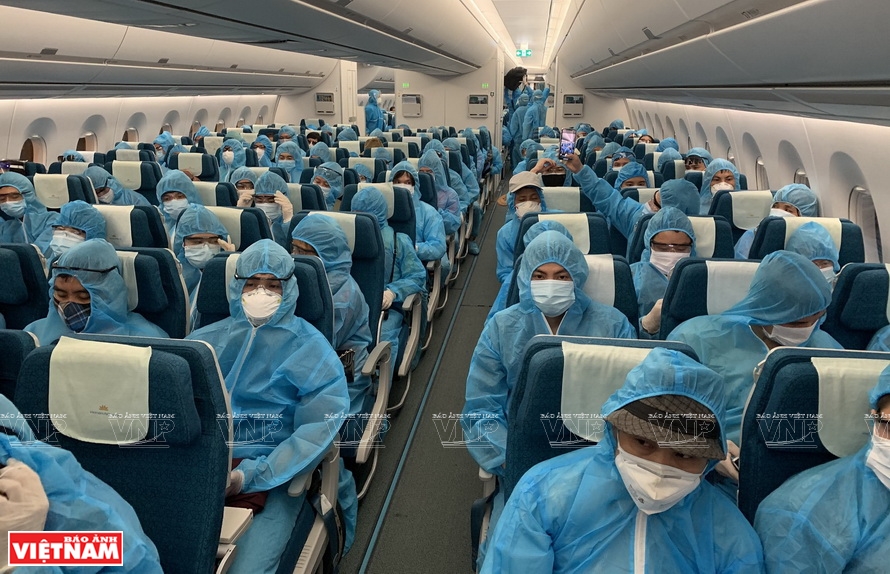
The first flight to bring Vietnamese citizens home from Cyprus and Saudi Arabia. Photo: Vietnam Airlines
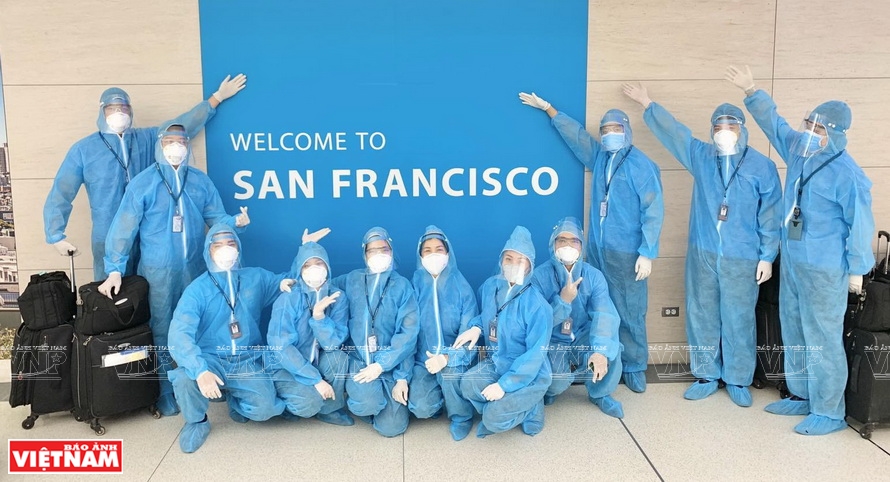 The Vietnamese Embassy in the US and Vietnam Airlines have cooperated with US authorities to bring home safely more than 340 Vietnamese citizens. Photo: Vietnam Airlines 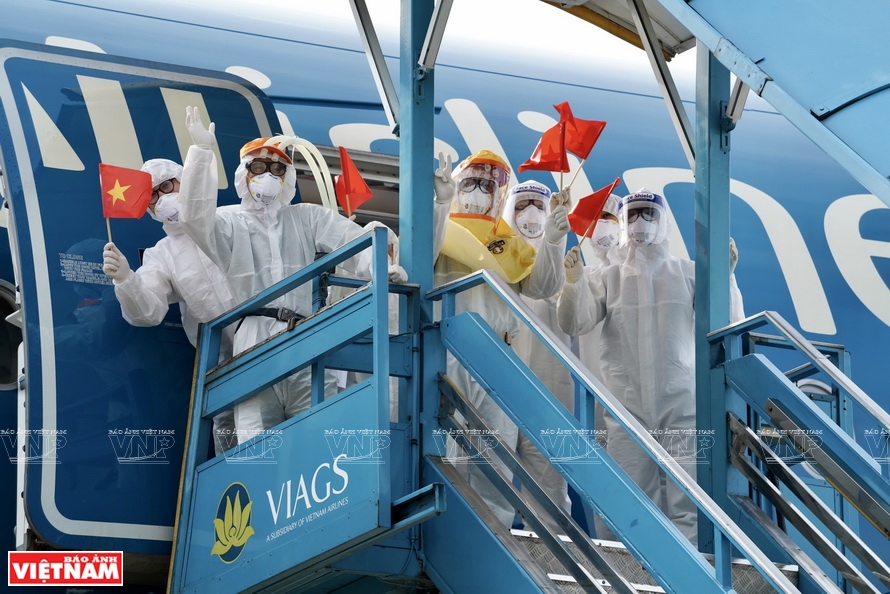 The joy of Vietnamese citizens from Equatorial Guinea when the plane lands at Noi Bai airport. Photo: Vietnam Airlines. Photo: Vietnam Airlines 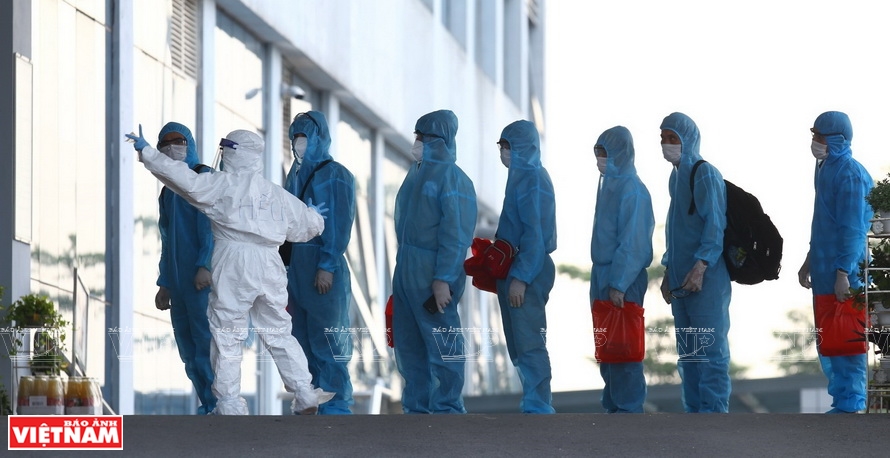
Guiding Vietnamese citizens from Equatorial Guinea to the quarantine area
at the Central Hospital for Tropical Diseases No.2 in Dong Anh, Hanoi. Photo: VNA |
The Ministry of Foreign Affairs has played a key role in this work, which is “not only a political task but also an instruction from the heart” as Deputy Foreign Minister To Anh Dung has said. In this spirit, Vietnamese embassies from all over the world have worked hard for the past few months to support citizens in their journey to return home.
“I can only sleep well when my country people have safely landed,” said Vietnamese Ambassador to India Pham Sanh Chau. It took Ambassador Chau and the staff at the embassy as long as two months to arrange a flight in May to carry home Vietnamese expatriates in India. The embassy made great efforts to be able to gather people from different parts of India to New Delhi to fly home. This was truly challenging given the lockdown to contain the outbreak of the pandemic in one of the world’s hardest-hit countries.
The staff at the Vietnamese embassy in Japan also had a huge workload in the past few months as the embassy operated a 24/7 hotline to assist citizens impacted by the pandemic, according to Ambassador Vu Hong Nam.
In the US, the world’s largest COVID-19 epicenter, Ambassador Ha Kim Ngoc has joined an online exchange between Vietnamese missions and the Association of Vietnamese students and young people in the US to update about them COVID-19 and the embassy’s assistance for Vietnamese citizens. Through this exchange program, the embassy and other US-based agencies of Vietnam have received nearly 1,000 requests to return home, which have been promptly forwarded to authorities at home for handling.
Vietnam’s initial success in battling COVID-19, including the protection of its citizens, has been recognized by the international community.
Love for fellow citizens
Overseas Vietnamese have been brought home in a caring and supportive manner, receiving not only helpful advice and support in processing formalities overseas to go home, but also good care when being quarantined in their homeland. Since early this year, Vietnam has established thousands of quarantine zones across the country, providing healthcare and other material support for people coming back from abroad.
COVID-19 patient No. 89, a student coming back from the US, said the care of doctors and health workers made his two-week treatment at Cu Chi field hospital a pleasant experience.
Thanh Tran, who lives in Europe, was grateful to his country for “opening its arms” to welcome him home. Thanh was aboard a 300-seat aircraft which carried only 18 passengers during a charter flight of the Vietnamese government to rescue its citizens from the COVID-19 crisis. Thanh felt lucky because his was one of the last flights to Vietnam from Europe before the continent closed its borders.
|
Disinfecting Vietnamese citizens’ luggage from Wuhan (China) at Van Don airport. Photo: Viet Linh 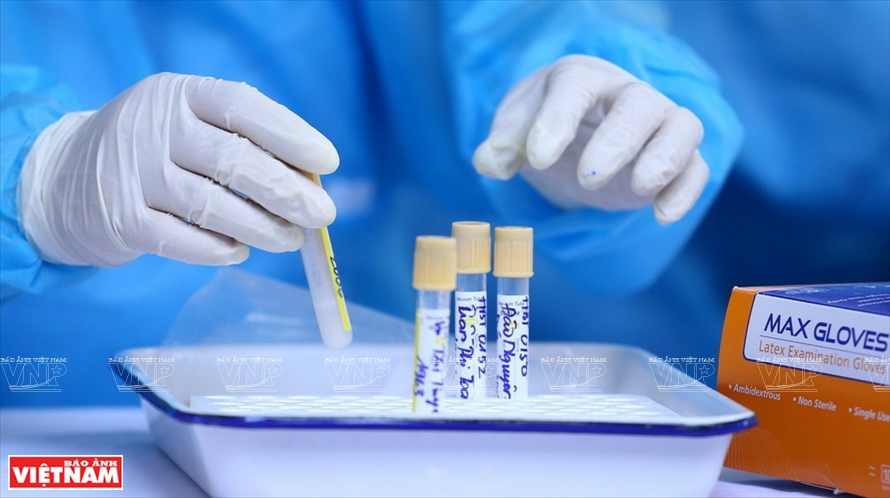 Samples from Vietnamese citizens returning home taken for COVID-19 testing using the RT-PCR method. Photo: VNA 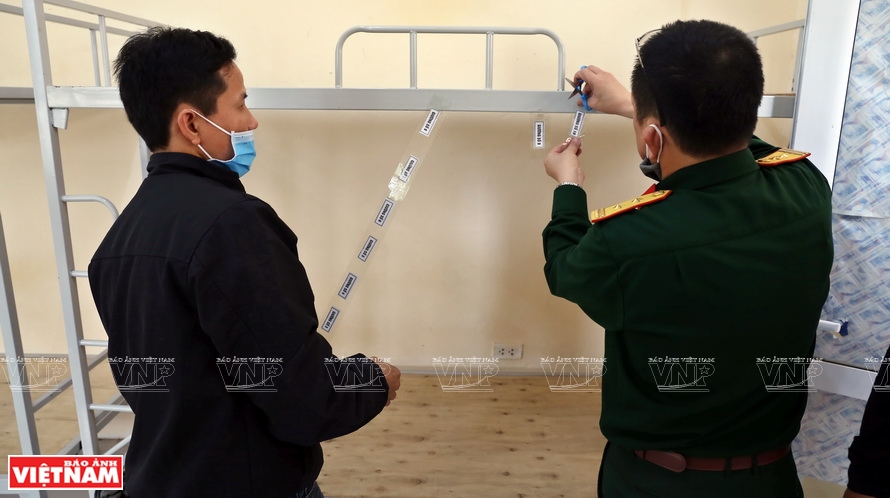 The student dormitory zone in Hanoi’s Hoang Mai district is converted into a quarantine area for Vietnamese citizens returning home. Photo: Cong Dat / VNP 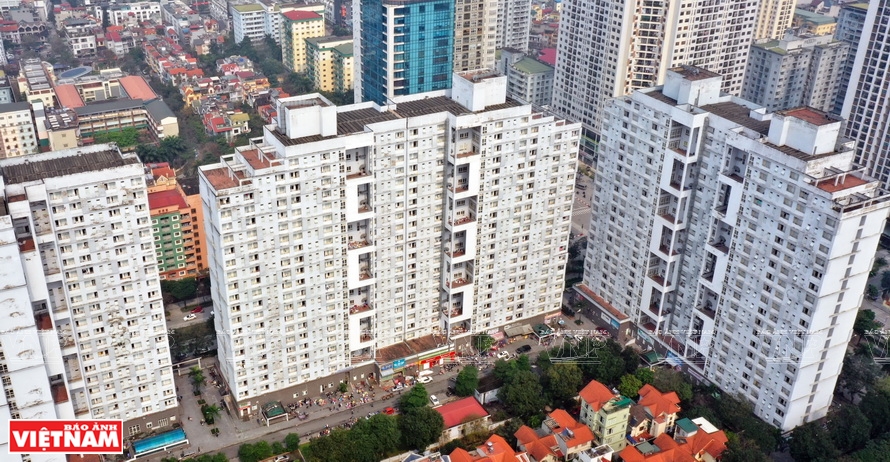
The My Dinh dormitory in Hanoi is used as a quarantine area. Photo: Cong Dat / VNP
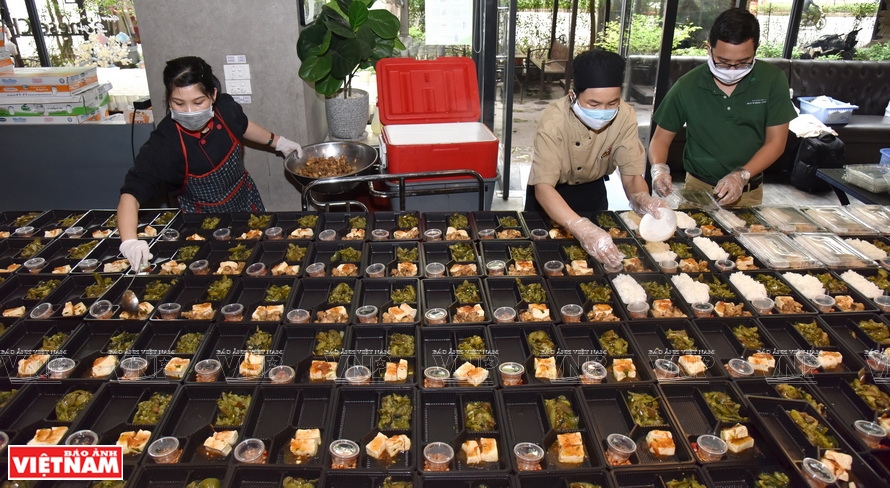 Meal boxes sent to doctors at the Central Hospital for Tropical Diseases. Photo: Thanh Giang / VNP 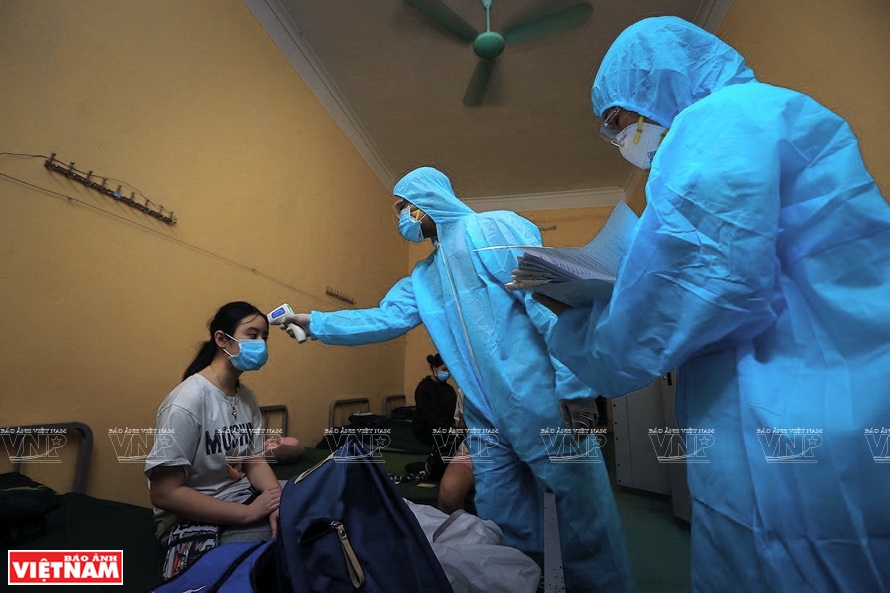 Hoa Binh province receives and quarantines 80 Vietnamese citizens returning home from abroad at the barrack of Regiment 814 under the provincial Military High Command. Photo: VNA 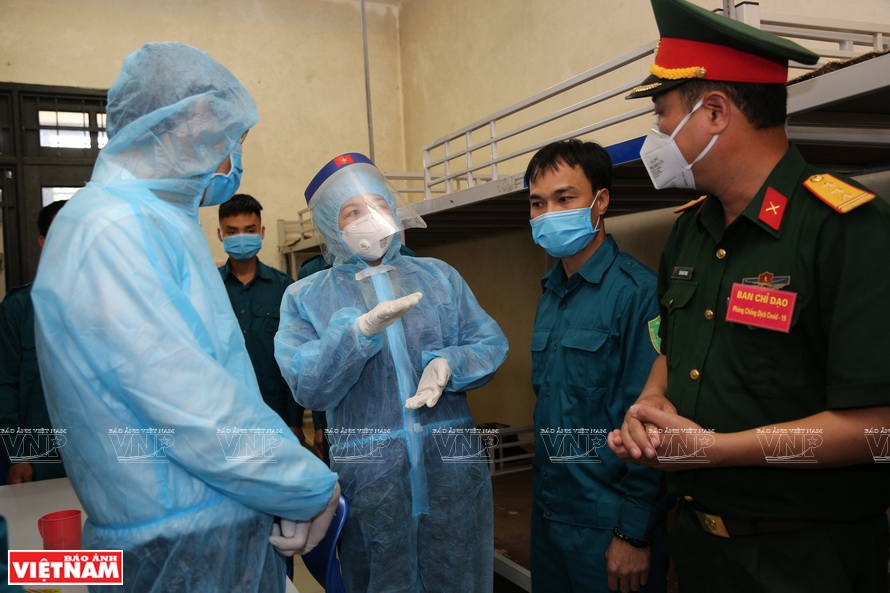 Vice President Dang Thi Ngoc Thinh visits the quarantine area at the center of defense and security education of Vietnam National University. Photo: VNA 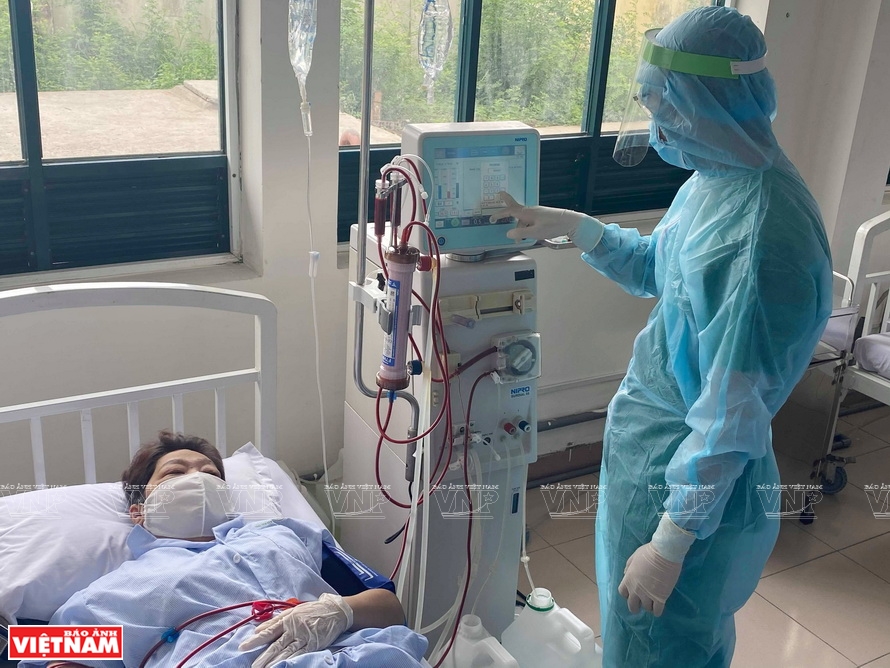 The District 2 Hospital in Ho Chi Minh City has set up a dialysis room in its quarantine area. Photo: VNA 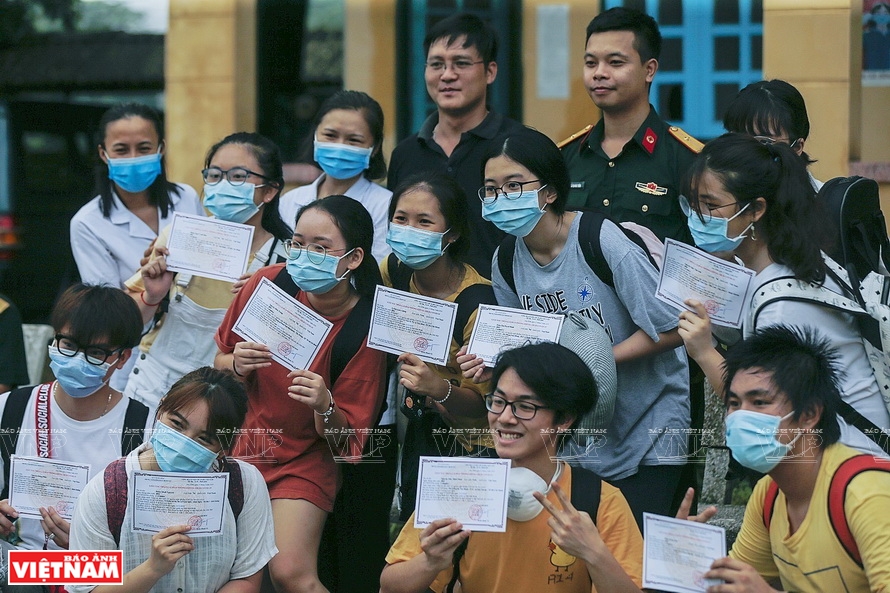 Vietnamese citizens coming from abroad completed their quarantines at the barrack of Regiment 814. Photo: Trong Dat / VNA |
| The Vietnamese government has battled against COVID-19 in the spirit of “leaving no one behind” and “the people’s life is above all”. |
With the same code of “love for fellow citizens”, the flights carrying Vietnamese nationals from pandemic-hit areas across the globe have made Vietnamese people in general, and overseas Vietnamese in particular, deeply understand that wherever they stay, their homeland is where to come back to whenever they need.
Story: Phong Thu
Photos: Viet Linh, Tran Hieu, Phi Hung,
Cong Dat, Thanh Giang, VNA & Vietnam Airlines
Translated by Hong Hanh
Photos: Viet Linh, Tran Hieu, Phi Hung,
Cong Dat, Thanh Giang, VNA & Vietnam Airlines
Translated by Hong Hanh

